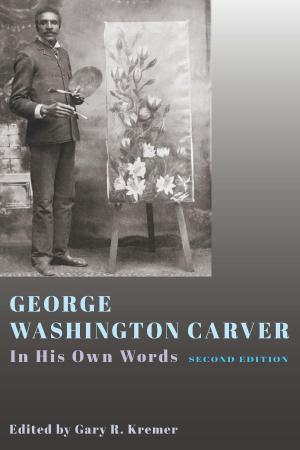If You Were Only White
The Life of Leroy "Satchel" Paige
Nonfiction, Sports, Baseball, History, Biography & Memoir| Author: | Donald Spivey | ISBN: | 9780826272805 |
| Publisher: | University of Missouri Press | Publication: | May 27, 2012 |
| Imprint: | University of Missouri | Language: | English |
| Author: | Donald Spivey |
| ISBN: | 9780826272805 |
| Publisher: | University of Missouri Press |
| Publication: | May 27, 2012 |
| Imprint: | University of Missouri |
| Language: | English |
If You Were Only White explores the legacy of one of the most exceptional athletes ever—an entertainer extraordinaire, a daring showman and crowd-pleaser, a wizard with a baseball whose artistry and antics on the mound brought fans out in the thousands to ballparks across the country. Leroy “Satchel” Paige was arguably one of the world’s greatest pitchers and a premier star of Negro Leagues Baseball. But in this biography Donald Spivey reveals Paige to have been much more than just a blazing fastball pitcher.
Spivey follows Paige from his birth in Alabama in 1906 to his death in Kansas City in 1982, detailing the challenges Paige faced battling the color line in America and recounting his tests and triumphs in baseball. He also opens up Paige’s private life during and after his playing days, introducing readers to the man who extended his social, cultural, and political reach beyond the limitations associated with his humble background and upbringing. This other Paige was a gifted public speaker, a talented musician and singer, an excellent cook, and a passionate outdoorsman, among other things.
Paige’s life intertwined with many of the most important issues of the times in U.S. and African American history, including the continuation of the New Negro Movement and the struggle for civil rights. Spivey incorporates interviews with former teammates conducted over twelve years, as well as exclusive interviews with Paige’s son Robert, daughter Pamela, Ted “Double Duty” Radcliffe, and John “Buck” O’Neil to tell the story of a pioneer who helped transform America through the nation’s favorite pastime.
Maintaining an image somewhere between Joe Louis’s public humility and the flamboyant aggression of Jack Johnson, Paige pushed the boundaries of segregation and bridged the racial divide with stellar pitching packaged with slapstick humor. He entertained as he played to win and saw no contradiction in doing so. Game after game, his performance refuted the lie that black baseball was inferior to white baseball. His was a contribution to civil rights of a different kind—his speeches and demonstrations expressed through his performance on the mound.
If You Were Only White explores the legacy of one of the most exceptional athletes ever—an entertainer extraordinaire, a daring showman and crowd-pleaser, a wizard with a baseball whose artistry and antics on the mound brought fans out in the thousands to ballparks across the country. Leroy “Satchel” Paige was arguably one of the world’s greatest pitchers and a premier star of Negro Leagues Baseball. But in this biography Donald Spivey reveals Paige to have been much more than just a blazing fastball pitcher.
Spivey follows Paige from his birth in Alabama in 1906 to his death in Kansas City in 1982, detailing the challenges Paige faced battling the color line in America and recounting his tests and triumphs in baseball. He also opens up Paige’s private life during and after his playing days, introducing readers to the man who extended his social, cultural, and political reach beyond the limitations associated with his humble background and upbringing. This other Paige was a gifted public speaker, a talented musician and singer, an excellent cook, and a passionate outdoorsman, among other things.
Paige’s life intertwined with many of the most important issues of the times in U.S. and African American history, including the continuation of the New Negro Movement and the struggle for civil rights. Spivey incorporates interviews with former teammates conducted over twelve years, as well as exclusive interviews with Paige’s son Robert, daughter Pamela, Ted “Double Duty” Radcliffe, and John “Buck” O’Neil to tell the story of a pioneer who helped transform America through the nation’s favorite pastime.
Maintaining an image somewhere between Joe Louis’s public humility and the flamboyant aggression of Jack Johnson, Paige pushed the boundaries of segregation and bridged the racial divide with stellar pitching packaged with slapstick humor. He entertained as he played to win and saw no contradiction in doing so. Game after game, his performance refuted the lie that black baseball was inferior to white baseball. His was a contribution to civil rights of a different kind—his speeches and demonstrations expressed through his performance on the mound.















